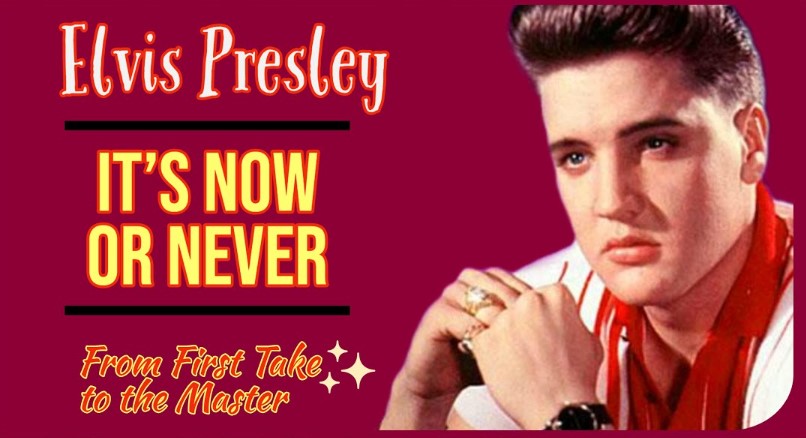Elvis and Liberace were revolutionaries when it came to the Las Vegas stage show — two P.T. Barnum-fueled showmen whose over-the-top theatrics sent shockwaves through audiences. Their bombastic, take-no-prisoners style, which thrives today in the Strip’s celebrated venues, established common ground. It also opened the door to a lasting friendship that flourished not only in the Vegas spotlight but also in Palm Springs, where they were longtime neighbors.

In 1956, when Elvis first played Las Vegas, he was a rock ’n’ roller with no following, an unknown on the Vegas circuit as far as audiences were concerned. Music history recounts his first shows there as wobbly, flat, and poorly received, and his manager, Colonel (Tom) Parker, acted swiftly. “The Colonel went over to the Riviera Hotel for a visit with Liberace,” says Richard Zoglin, author of Elvis in Vegas: How the King Reinvented the Las Vegas Show. (Zoglin appears at a Rancho Mirage Writers Festival event Jan. 9). “The Colonel asked Liberace, who was admired and well regarded, if he could come watch Elvis’ show and offer suggestions for improvement. Liberace graciously complied and promptly dispensed a key piece of advice: ‘The show needs more glitz.’”

So glitz it was — to the max. “By the following spring,” Zoglin says, “Elvis was wearing a gold lamé jacket,” and his shows became more theatrical, hard driven, and energetic. Like Liberace, he continuously upped the ante with props, costumes, and soul-baring bravado. He left nothing offstage. So outré, so far from what Vegas audiences had experienced or expected, it sometimes drew laughs, says longtime Elvis friend Jerry Schilling. “It was Liberace who helped Elvis put it all in perspective. Liberace told him, ‘It’s OK, Elvis. Let ’em laugh at you all the way to the bank.’”

He did, and how that all played out is well documented. However, an unusual consanguinity was not. “Both Elvis and Liberace had stillborn twin brothers,” Zoglin notes. If or how that drew them closer to each other’s confidence is difficult to discern or put into words. The genuine respect and admiration Elvis found and held onto for Liberace is not. “Elvis admired the persona of Liberace, how he went out on a limb, [dared to be] different.”
Ironically, audiences overlooked the risks they took on stage, that sense of filling up a space, Zoglin says. “Those qualities were not the most valued. I believe that contributed to their friendship flying under the radar.”

It flew from the Strip to Palm Springs. “Before Elvis and I went to Palm Springs, we didn’t think much of it — thought it was for old people,” Schilling says. “But when we went to meet the Colonel — he had a place there, loved it, could sit in a sauna for hours — we went, ‘Wow, Palm Springs is great!’ Elvis bought the house Ray Kroc of McDonald’s built because Ray got a divorce and never moved in.” The house on Chino Drive (the only Palm Springs home Elvis bought; he leased two others) was located within walking distance of Liberace’s home at the time. Soon, Liberace invited Elvis over. Schilling recalls the era, the early 1970s, and that first visit to Liberace’s.
“Elvis and I had been doing a lot of off-roading since coming to Palm Springs, zipping around the hills in dune buggies,” Schilling recalls. “We go over to Liberace’s — this was some 15 years after he and Elvis met, and the mutual admiration was still there — and parked in Liberace’s driveway was a dune buggy.” Not any dune buggy. “This thing was sweet. Black, shiny, chandeliers hung from the top.” Elvis, who knew cool, wanted it. “He wound up buying it off of Liberace. It was too nice to go off-roading in. Instead, Elvis drove that thing all over Palm Springs. He just loved it, kept it for the longest time.”

Detailed stories of Elvis and Liberace’s shared experiences during that time are becoming tougher to track down and corroborate, as many personalities of the time have died or become reclusive. But it is generally accepted that the two enjoyed plenty of dinners, drinks, and conversations in Palm Springs.
The freedom didn’t last, however. As each entertainer rose into the zeitgeist, scrutiny intensified and it became harder to escape, even in Palm Springs. But their bond never broke. “Liberace made Elvis feel comfortable at a time Elvis had been very uncomfortable,” Schilling says. “Elvis never forgot that.”



